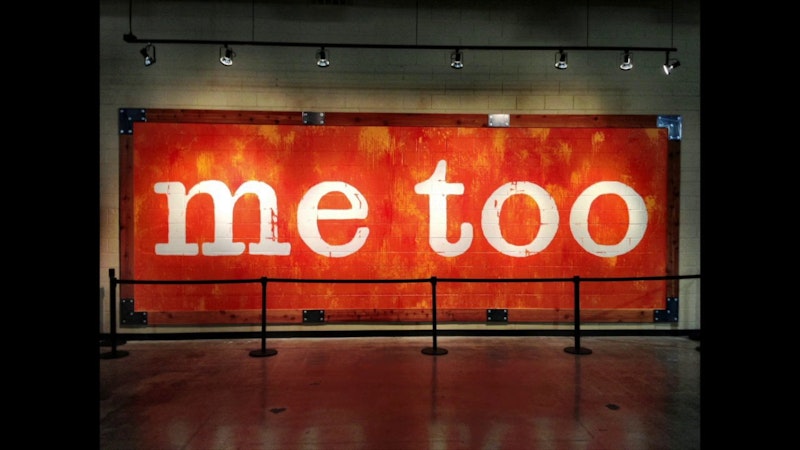If there are two words I’d use to sum up current societal maladies, it’d be collectivism and contradiction. You see it everywhere but most prominently on social media, which usually gains enough traction to enter into other forms of media. Ever since the allegations against Harvey Weinstein entered the public sphere and his subsequent cowardly escape out of America, the #MeToo movement has become stronger every day.
Women have poured out accusations of sexual harassment, assaults, gropings, and rape. I didn’t like the #MeToo idea immediately from its Twitter inception, and I wrote about its transiency and “drive-thru” healing. What may have started as a way to have solidarity among women who’ve been wronged by men, has turned into a full-fledged attack on masculinity. Anyone can make accusations and because they’re made by women, they ought to be taken as the complete and utter truth. This clearly lacks logic.
If, as a woman, you happen to voice an opposition to these so-called arguments against men, and God forbid, if you defend men, then you’re seen as a traitor. This assumes that you define yourself only as a woman (or to put it more bluntly, as a vagina) and because of this, you owe allegiance to your sex. This means that you’re mindlessly defending women without any regard to reasonable thinking. Gender has become a group that’s solely focused on the body and divorced from the mind and soul.
We’d be fools to think that this is just an attack on men and masculinity. There’s much more to this collectivist phenomenon. This is an attack on sexuality. An open letter published in the French Le Monde criticizes the #MeToo movement as well as the French equivalent #BalanceTonPorc (Call Out Your Pig). Among the signatories is actress Catherine Deneuve, whose mere presence exudes and defines the erotic. The letter calls the #MeToo movement “hatred of men and sexuality.” “Rape is a crime,” the letter reads, “but insistent or clumsy flirting is not an offense, nor is gallantry macho aggression.”
The fact that we’ve reached such absurdity in society that we actually have to write such disclaimers is preposterous in and of itself. I’m still waiting and certainly expecting that some woman will accuse a man of “male gaze,” and that he “assaulted” her with his eyes. Talk about a disembodied virtual reality.
For all the complaining about the vileness and vulgarity of men and masculinity, there’s no talk about sexual pleasure or seduction. Women have rendered themselves victims—damsels in distress who at the same time, refuse to be rescued. They’ve also willingly shackled themselves in chastity belts. Sexual pleasure and the erotic playfulness between men and women are annihilated by lifelessness, bloodlessness, and repression. Instead of refusing to be defined by rape or assault, they embrace it.
Aren’t we all adults? Is a woman that stupid not to know the difference between sexual attraction and vulgar harassment? Why are these women more content in being victims? Are they afraid of masculinity, and by association, are they afraid of their very selves?
There’s a great deal of erotic ambiguity in a relation between men and women. It’s the sexual difference that contributes to the regions of existential uncertainty. But the ambiguity is also what gives rise to human vulnerability. This is love.
A relation between a man and a woman is multi-faceted, and this is particularly true of the erotic relation. The lovers are caught in the pure intoxication of eros. Their minds and bodies are intertwined in the mad paroxysms of voluptuousness. They oscillate between the giving and receiving of power and the mutual recognition of each other's difference. They are fully themselves and yet their vulnerability allows for submission. They embrace their physicality, reject puritan disembodiment, and allow for the movement of touch and erotic gazes. They are each other's objects and yet the transcendence of love and erotic energy goes beyond objectified gazes as they enter into the region of desire. In this dialogue of love, the lovers announce their intentions through the whispers of the body as they move between the experience of the sacred and the profane.
This relation is possible and it does exist. It happens when we, first and foremost, see each other as human beings. By humanizing each other, we not only accept each other's vulnerability but also hunger.
The #MeToo movement is composed of women who are set on revenge and want to destroy the erotic possibilities inherent in relations between men and women. Living in a contradiction, they’re letting the perpetrator win because they refuse to see those possibilities. This attack isn't just an attack on masculinity. It’s also about an immature need to be part of the collective, destruction of pleasure, and the rejection of love.

